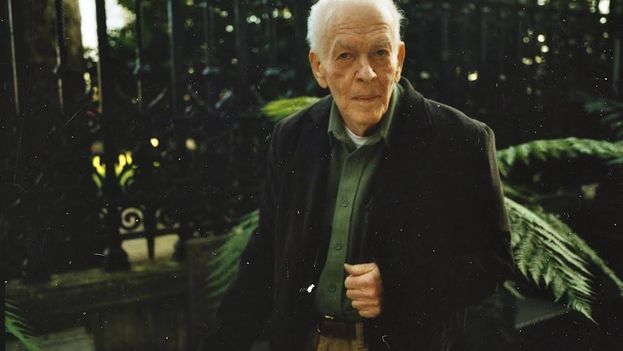
![]() 14ymedio, Havana, 31 January 2018 — Gene Sharp, the intellectual whose work focusing on pacifism and nonviolence inspired activists around the world in their struggle against oppression, has died “peacefully” at his home in Boston at the age of 90, according to an announcement on Monday through his official Twitter account.
14ymedio, Havana, 31 January 2018 — Gene Sharp, the intellectual whose work focusing on pacifism and nonviolence inspired activists around the world in their struggle against oppression, has died “peacefully” at his home in Boston at the age of 90, according to an announcement on Monday through his official Twitter account.
The retired university professor, whose death occurred on Sunday but was not announced until Tuesday, believed firmly in the power of ordinary people to end the power of dictatorships. His theories angered leaders such as Venezuela’s Hugo Chavez and Serbia’s Slobodan Milosevic, as well as leaders in Russia and Angola.
In Cuba, the official press has harshly criticized the theories of the American thinker, whom they accused of fomenting a “soft coup” and of propagating “practices of psychological warfare and misinformation.”
The Patriotic Union of Cuba (UNPACU), the largest opposition organization in the country, has closely followed the approaches of Sharp. “We have assumed the strategy he designed,” and the book From Dictatorship To Democracy, A Conceptual System For Liberation has become a “compulsory study manual for UNPACU coordinators,” Carlos Amel Oliva, a young activist from Santiago de Cuba, told 14ymedio.
That most iconic of the works of the long-lived pacifist was published in the early 1990s and became a reference manual for nonviolent revolutions throughout the world.
Oliva lists “marches, peaceful protests and the distribution of information” as some of the actions carried out by the members of his organization inspired by the guidelines outlined by Sharp. “His ideas are like a seed that we hope will continue to bear fruit,” the opponent stresses.
Sharp’s books have been widely disseminated on the island despite the fact that the official publishing houses have not released them. Through new technologies, especially USB drives and external hard drives, Sharp’s publications have circulated in digital format among activists and citizens.
The thinking of the American intellectual also ideologically inspired several uprisings such as Ukraine’s Orange Revolution in 2004, and in 2011 the protests of the Arab Spring in Egypt, as well as the Occupy Wall Street movement against economic inequality in the United States.
Speaking to the British newspaper The Guardian, the author’s biographer, Ruaridh Arrow, said, like many before him, that among Sharp’s greatest references were Henry David Thoreau, Martin Luther King and Mahatma Gandhi.
Unlike other members of the pacifist movement, the academic did not have as a main pillar of his moral criteria a firm belief in nonviolence, but pragmatically saw the effectiveness of those who exercised it.
Sharp, who in his youth went to prison for civil disobedience by refusing to fight in the Korean War (1950-1953), came to propose 198 methods of non-violent action grouped according to the level of risk, preparation and forcefulness.
For Dagoberto Valdés, director of the Coexistence Studies Center in Pinar del Río, Sharp’s work “has marked a before and after in activism throughout the world and in Cuba.” The American philosopher was vital in the “process of changing the mentality regarding the legitimacy of nonviolent struggle and peaceful methods.”
A Professor of Political Science at the University of Massachusetts Dartmouth, the academic was nominated for the Nobel Peace Prize on multiple occasions, and although he did not win it he received many other recognitions and distinctions for his work.
___________________________________
The 14ymedio team is committed to serious journalism that reflects the reality of deep Cuba. Thank you for joining us on this long road. We invite you to continue supporting us, but this time by becoming a member of 14ymedio. Together we can continue to transform journalism in Cuba.
